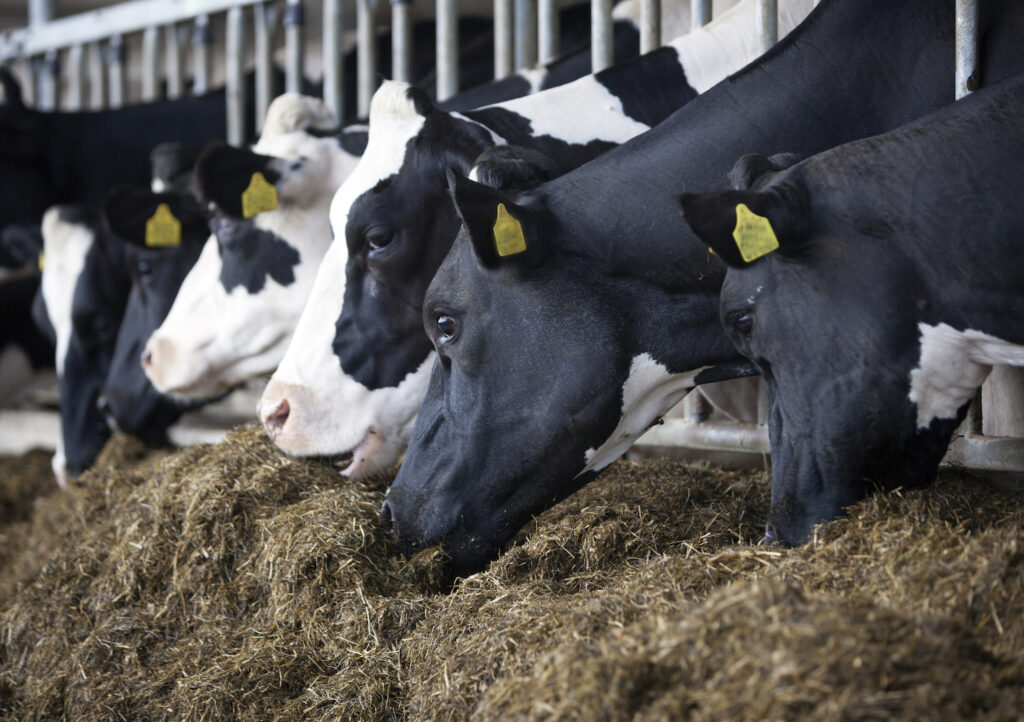First-of-its-kind heat stress study gets underway on UK farms
28th April 2023
As we make our homes fit for purpose to cope with climate change, researchers are asking, should we do the same for our livestock?
For the first time, UK researchers will use bespoke animal tracking and environmental sensors to better understand heat stress in dairy cows, as temperatures look set to keep rising in the future.
The £1.24 million project by the Universities of Reading, Essex, Cardiff and Writtle University College, will seek to better understand the interaction between temperature, ‘microclimates’ within farm buildings and cow physiology and behaviour.
Research will be carried out at Reading’s Centre for Dairy Research (CEDAR) and six commercial dairy farms across the UK.
Individual cow behaviour will be continuously monitored using tracking sensors from Omnisense and Smartbell, that record patterns of movement, activity, and space-use for each animal in the herd.
This approach the team is taking has never been done in this way before.
Detailed observations of barn ‘microclimates’ (temperature, humidity, air quality, ventilation) will also be obtained and combined with physiological data (cow body temperature, milk production, health).
Cows are known to adapt their behaviour to help cope with high temperatures and humidity: they may increase their intake of water, seek shade or areas of increased ventilation, or exhibit other individual and social behavioural responses, all of which can be observed.
The project will bring together experts in animal and dairy sciences, mathematical modelling and statistics, and building design engineering.
Chris Reynolds, Professor of Animal and Dairy Sciences at the University of Reading, said: “Heat stress due to climate change could have severe negative consequences for the health and productivity of dairy cows. Lactating cows have a high rate of metabolism, which makes them less tolerant of high temperatures. Research is essential to inform and shape future cow management strategies and building designs.”
Commenting on the need for fresh solutions in light of climate change, Zhiwen Luo, Professor in Architectural and Urban Science at Cardiff University, said: “We have to respond to the changing environment and through better understanding of how cows interact with building microclimates, design housing and management systems that minimise heat stress and enable more sustainable dairy systems.”
The data collected will inform development of housing designed to reduce heat stress and improve welfare.

